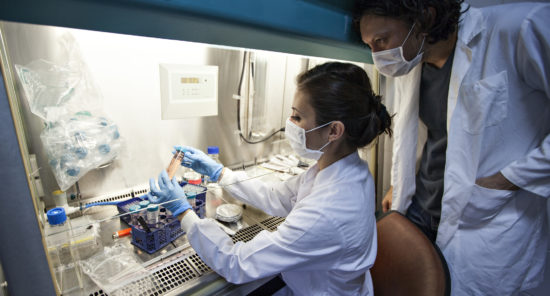In a study, published in Neuromodulation, researchers evaluated whether transcutaneous electrical acustimulation at two acupuncture points, LI4 and ST36, could alleviate abdominal pain and improve quality of life (QOL) in patients with diarrhea-predominant irritable bowel syndrome (IBS-D). The study, led Pingping Hu, MM, found that “TEA at LI4 and ST36 improves abdominal pain and quality of life of patients with IBS-D,” though they couldn’t identify the underlying mechanism of beneficial activity
The trial enrolled 42 total patients with IBS-D and randomized them to receive either TEA or a placebo procedure. Using previously established parameters, TEA was performed through the Hegu (LI4) and Zuslanli (ST36) acupoints twice a day for one hour over a one month period. Placebo-TEA followed the same procedure, but without active electrical current stimulation.
According to the article, the sham-TEA group had a significantly higher drop-out rate at 29% compared to 0% drop-out in the TEA group (p = 0.021). The authors also reported that “TEA, but not sham-TEA, significantly improved quality of life” (before: 78.55 ± 9.62; after: 85.97 ± 9.49; p <0.0001). Patients in both TEA and sham-TEA groups reported reduced abdominal pain, but the reduction was greater for patients in the TEA group (p = 0.014). Comparatively, IBS symptom severity scale (IBS-SSS) score was reduced in both groups. Lastly, autonomic functions assessed via plasma norepinephrine and pancreatic polypeptide, as well as interleukin (IL)-10 and IL-6, were not altered after TEA
Overall, the authors’ findings supported the value of acustimulation via TEA therapy for patients with IBS-D. Though the mechanism by which TEA improved QOL and alleviated pain was not apparent, the article suggested that it was “probably mediated by mechanisms other than autonomic function or inflammatory cytokines.”
Source: https://www.neuromodulationjournal.org/article/S1094-7159(21)06184-5/fulltext








